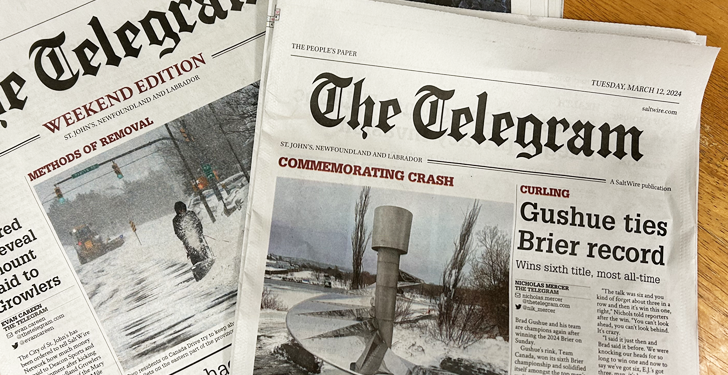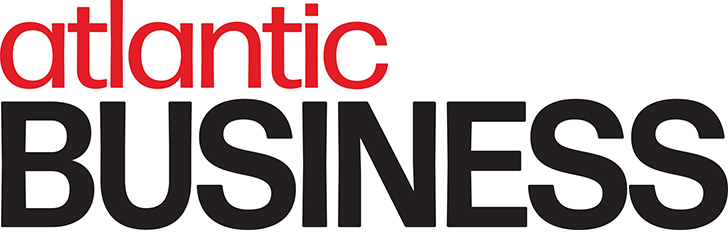
Dear ABMInsider,
It’s a really, really, really bad news day for Saltwire Network.
The owner and operator of 23 newspapers throughout Atlantic Canada has gone into creditor protection. As reported this morning by the CBC, they’re in debt for over $94 million, are behind $2.6 million in missed pension plan payments, and owe another $7 million to Revenue Canada for unpaid HST.
As an aside, I can’t comprehend how they managed to get that far behind with their HST; the Feds are rarely patient when it comes to monies owed. But I digress…
Getting back to the Saltwire financial fiasco, $94 million + $2.6 million + $7 million = $103.6 million in debt. Their assets are only worth an estimated $33 million. If they sold everything they have, they’d barely make a dent in filling this moneypit. And this gives me hope.
The problem, in hindsight, is that they borrowed – heavily – to buy 28 regional papers from Transcontinental back in 2017. They were so heavily leveraged, in fact, that they didn’t have any money to invest in expansion or revitalization. So their ownership immediately became a game of cost-reduction: some papers ceased to exist, production was consolidated, newsrooms were gutted, community news was replaced with regional content. And the more things were pulled back, the less value consumers saw in the product. The less value there is for consumers, the less attractive it is to advertisers; fewer advertisers leads to smaller issues, and on it goes in a vicious downward spiral.
I used to be a newspaper carrier, back when I was 11 years old. I forget how much I was paid for delivering 100 papers, six days a week (and collecting payment too), but I know I really relied on tips to make it worthwhile. What I most remember, however, is the size of the Wednesday and Saturday papers. They were whoppers. Multiple sections, with each section roughly the same size as an entire edition today. If you’ve picked up a local paper anytime recently, you know what I’m talking about.
This is not the fault of the diligent reporters, photographers and news teams who put these issues together. I know many of them and have nothing but respect for how they put their heart and soul into each and every publication. But there’s only so much that’s humanly possible. One of my daily colleagues told me they haven’t had an actual newsroom in years; he says their reporters work independently at home, going out to interviews only as needed. The collegiality and idea-sharing that were the hallmark of the newsroom is long-gone, and it shows.
Bottom line: you cannot cost cut your way to prosperity.

Tellingly, the Saltwire story was broken by online news outlet AllNovaScotia. And here’s the thing about AllNovaScotia: their content is strictly paywalled. Even as a subscriber, you can’t share, download them or print their stories. Their long-form text isn’t rich in video or sophisticated tracking. And advertising on their site is expensive (beginning at $200/five days for a rotating leaderboard spot that you can’t see on a mobile device). What they do have is somewhere between 13,000 and 17,000 subscribers paying $39 plus tax every four weeks - that’s a minimum of $500,000 in subscriber revenue per month - without the expense of print or distribution. And it’s money that’s invested directly back into the newsroom: AllNovaScotia and its regional affiliates have something like 40 reporters dedicated to breaking business and political news stories every day. They are growing; Saltwire is shrinking.
Some of you will argue there’s nothing that can be done, that the day of the newspaper is past; print is dead, all hail the digital world. I disagree, and so do Saltwire’s creditors. In its court filings, primary lender Fiera Private Debt attributed Saltwire’s current state to demonstrable mismanagement.
While the process of print can’t keep up with the speed of an insta-digital #breakingnews environment, I’d also argue that it shouldn’t try. Print has its own distinct advantages - people read and remember print content differently from online material – but speed isn’t one of them. That’s a good thing.
Saltwire’s management could have invested in unique online products and embraced print as a specialty platform for investigative reporting with deep backstories. The fact that they didn’t means that option is still on the table, if not by the current Saltwire owners, then by someone else. And that’s gives me hope.
 |
Dawn Chafe Co-owner & Executive Editor Atlantic Business Magazine dchafe@atlanticbusinessmagazine.ca |

